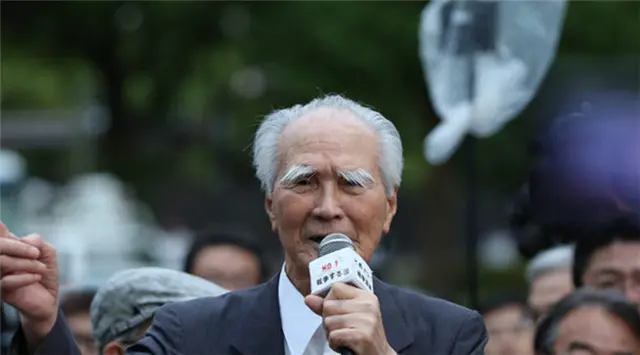Japan and India over the weekend inked a number of pacts during talks between the two nation's leaders, with Japanese Prime Minister Shinzo Abe being eager to return from the soon-to-be world's most populous country with new projects and contracts that will help bolster Japan's still tepid economic recovery.
All major deals primarily inked between Abe and his Indian counterpart Prime Minister Narendra Modi in New Delhi were within market expectations, although analysts here said that Japan's push to export its civil nuclear technology to India was to an extent being keenly eyed by stakeholders and other interested parties, including other countries in South and East Asia.
"Japan had previously been reluctant to forge such a deal with India as it has yet to become a signatory of the nuclear Non-Proliferation Treaty (NPT) which only recognizes Britain, China, France, Russia and the United States as nuclear powers," political analyst Teruhisa Muramatsu told Xinhua.
"But it would be seen that after around 10-years of going back and forth on the idea, economic factors became the priority and Abe was seemingly convinced by Modi's pledge to use any nuclear technology exported from Japan purely for civilian-based, rather than military-related projects."
He added that the two countries highlighting the new "strategic importance" of their relationship and dubbing it a "Special Strategic and Global Partnership" could more simply be described as India needing more foreign direct investment to underpin its economic growth, and Japan needing such a growing and willing economy to sell to and kickstart its own sluggish economy.
"From this respect, its a quid-pro-quo relationship primarily based on each country's economic fundamentals," Muramatsu added. "There's no mystery as to why Abe has visited India three times in his tenure. India needs power (electricity) and new infrastructure, and Japan has the knowhow as well as deep-pockets to invest," he said.
To ensure Japan's nuclear technology would only be used for peaceful means, a memorandum of understanding (MoU) was inked between the two countries to ensure that India would stick to its agreement of only using the technology for peaceful means, although while a civil nuclear cooperation pact has been agreed upon in principle, the exact technical details have yet to be worked out.
Civic groups here, however, have blasted the agreement, pointing to the fact that India has conducted nuclear weapons tests on more than one occasion.
Protests were held here over the weekend outside the prime minister's office with civic group members and survivors of the atomic attacks on Hiroshima and Nagasaki that essentially ushered in the end of the World War II, sending a collective message that even a civic nuclear cooperation pact could lead to covert weapons production and that, in general, nuclear technology in any form was not in the best interests of peace in the world, considering the current volatility in South Asia and the Middle East.
Friends of the Earth Japan told local media that the nuclear deal "tramples" on nonproliferation efforts made by Japan over the years, while a senior official from the Hiroshima Prefectural Confederation of A-Bomb Sufferers Organizations said "We are not sure when India, for some reason, will seek to divert the technology to nuclear weapons."
"This move is intolerable for atomic bomb survivors because it goes against the government's position to seek the abolition of nuclear weapons," Shimizu, 73, was quoted as saying.
Meanwhile, the mayor of Nagasaki, Tomihisa Taue, described the latest deal with India as "extremely regrettable" and said survivors of the atomic bombings as well as many others were against the pact.
Preempting the obvious backlash that would occur back home, Deputy Chief Cabinet Secretary Koichi Hagiuda, who was accompanying Abe on his trip said that Japan's cooperation under the bilateral civil nuclear pact will halt if India conducts a nuclear test, with Abe himself reiterating the fact that India has continued its moratorium on nuclear tests and has shown a strong intention towards the pursuit of nuclear energy for peaceful purposes.
Abe's trip, aside form selling nuclear technology, was also centered around securing a new deal with India concerning a high-speed rail link that will connect Mumbai in western India and Ahmadabad, some 500 km north of Mumbai, in about 2 hours.
The rail project in India is expected to cost in the region of 980 billion rupee (14.68 billion U.S. billion dollars), with work slated to begin in 2017, with the first high-speed trains going into service on the new line in 2023.
For Japan's part, it has committed to providing India with a package that includes railway cars and operating systems in exchange for construction contracts for the project being given to Japanese firms.
Modi described this partnership as launching a revolution in Indian railways that will speed up India's journey into the future, and one that will become an engine of economic transformation.
The background to this deal in Japan, however, is that stakeholders here are hoping that this new deal will aid Japan's bids for other international high speed rail projects, as competition for Japan in this arena is getting fierce.
"Japan first rolled out its Shinkansen high speed trains in the 1950s and for the longest time its rail networks featuring the iconic 'bullet trains' were the envy of the world," Asian affairs commentator Kaoru Imori told Xinhua.
"But over the years other countries have caught up and can compete with Japan's technology with Italy, China, Germany and Spain all boasting their own next-generation high-speed trains, some of which have made forays into the maglev (magnetic levitation) market, which is believed to be the future of high speed train travel."
Abe meeting Modi in person to ensure Japan was issued India's lucrative new rail contract, says as much about India and Japan's so-called 'strategic partnership' as it does about Japan losing its once unchallenged grip on pioneering train technology," Imori concluded.
 简体中文
简体中文

